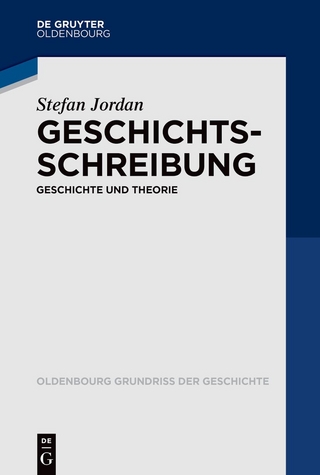
Sibling Action
The Genealogical Structure of Modernity
Seiten
2017
Columbia University Press (Verlag)
978-0-231-18040-5 (ISBN)
Columbia University Press (Verlag)
978-0-231-18040-5 (ISBN)
Stefani Engelstein argues that the sibling paradigm shaped the modern subject, life sciences, human sciences, and collective identities such as race, religion, and gender. Integrating close readings with panoramic intellectual history, Sibling Action presents a compelling new understanding of systems of knowledge.
Beginning in the late eighteenth century, Europeans embarked on a new way of classifying the world, devising genealogies that determined degrees of relatedness by tracing heritage through common ancestry. This methodology organized historical systems into family trees, transforming the closest contemporaneous terms on trees of languages, religions, races, nations, species, or individuals into siblings. Encompassing political fraternity, sister languages, racial discourse on brotherhood, evolutionary sibling species, and intense, often incestuously inclined brother-sister bonds in literature, siblinghood stands out as a ubiquitous-yet unacknowledged-conceptual touchstone across the European long nineteenth century. In all such systems the sibling term, not-quite-same and not-quite-other, serves as an active fault line, necessary for and yet continuously destabilizing definition and classification. In her provocative book, Stefani Engelstein explores the pervasive significance of sibling structures and their essential role in the modern organization of knowledge and identity.
Sibling Action argues that this relational paradigm came to structure the modern subject, life sciences, human sciences, and collective identities such as race, religion, and gender. Engelstein considers theoretical constructions of subjectivity through Sophocles' Antigone; fraternal equality and its exclusion of sisters in political rhetoric; the intertwining of economic and kinship theory by Friedrich Engels and Claude Levi-Strauss; Darwin and his contemporaries' accounts of speciation; anthropological and philological depictions of Muslims and Jews at the margins of Europe; and evolutionary psychology's theorizing around the incest taboo. Integrating close readings across the disciplines with panoramic intellectual history and arresting literary interpretations, Sibling Action presents a compelling new understanding of systems of knowledge and provides the foundation for less confrontational formulations of belonging, identity, and agency.
Beginning in the late eighteenth century, Europeans embarked on a new way of classifying the world, devising genealogies that determined degrees of relatedness by tracing heritage through common ancestry. This methodology organized historical systems into family trees, transforming the closest contemporaneous terms on trees of languages, religions, races, nations, species, or individuals into siblings. Encompassing political fraternity, sister languages, racial discourse on brotherhood, evolutionary sibling species, and intense, often incestuously inclined brother-sister bonds in literature, siblinghood stands out as a ubiquitous-yet unacknowledged-conceptual touchstone across the European long nineteenth century. In all such systems the sibling term, not-quite-same and not-quite-other, serves as an active fault line, necessary for and yet continuously destabilizing definition and classification. In her provocative book, Stefani Engelstein explores the pervasive significance of sibling structures and their essential role in the modern organization of knowledge and identity.
Sibling Action argues that this relational paradigm came to structure the modern subject, life sciences, human sciences, and collective identities such as race, religion, and gender. Engelstein considers theoretical constructions of subjectivity through Sophocles' Antigone; fraternal equality and its exclusion of sisters in political rhetoric; the intertwining of economic and kinship theory by Friedrich Engels and Claude Levi-Strauss; Darwin and his contemporaries' accounts of speciation; anthropological and philological depictions of Muslims and Jews at the margins of Europe; and evolutionary psychology's theorizing around the incest taboo. Integrating close readings across the disciplines with panoramic intellectual history and arresting literary interpretations, Sibling Action presents a compelling new understanding of systems of knowledge and provides the foundation for less confrontational formulations of belonging, identity, and agency.
Stefani Engelstein is associate professor and chair of the department of Germanic languages and literature at Duke University. She is the author of Anxious Anatomy: The Conception of the Human Form in Literary and Naturalist Discourse (2008) and coeditor of Contemplating Violence: Critical Studies in Modern German Culture (2011).
List of Illustrations
Acknowledgments
Introduction: The Sibling and Modernity
Part I. Recuperating the Sibling
1. Sibling Logic
Part II. Fraternity and Revolution
2. The Shadows of Fraternity
3. Economizing Desire: The Sibling (in) Law
Part III. Genealogical Sciences
4. Living Languages: Comparative Philology and Evolution
5. The East Comes Home: Race and Religion
Epilogue: Spawning Disciplines
Notes
Works Cited
Index
| Erscheinungsdatum | 13.02.2018 |
|---|---|
| Zusatzinfo | 18 b&w figures |
| Verlagsort | New York |
| Sprache | englisch |
| Maße | 152 x 229 mm |
| Themenwelt | Geisteswissenschaften ► Geschichte ► Geschichtstheorie / Historik |
| Geisteswissenschaften ► Philosophie ► Philosophie der Neuzeit | |
| Geisteswissenschaften ► Sprach- / Literaturwissenschaft ► Anglistik / Amerikanistik | |
| Naturwissenschaften | |
| Sozialwissenschaften ► Soziologie ► Gender Studies | |
| ISBN-10 | 0-231-18040-3 / 0231180403 |
| ISBN-13 | 978-0-231-18040-5 / 9780231180405 |
| Zustand | Neuware |
| Haben Sie eine Frage zum Produkt? |
Mehr entdecken
aus dem Bereich
aus dem Bereich
Russland, die Ukraine und der Westen
Buch | Softcover (2024)
De Gruyter (Verlag)
CHF 55,90
Geschichte und Theorie
Buch | Softcover (2024)
De Gruyter Oldenbourg (Verlag)
CHF 34,90
wie Irritationen historisches Denken anregen
Buch | Softcover (2024)
Kohlhammer (Verlag)
CHF 96,55


